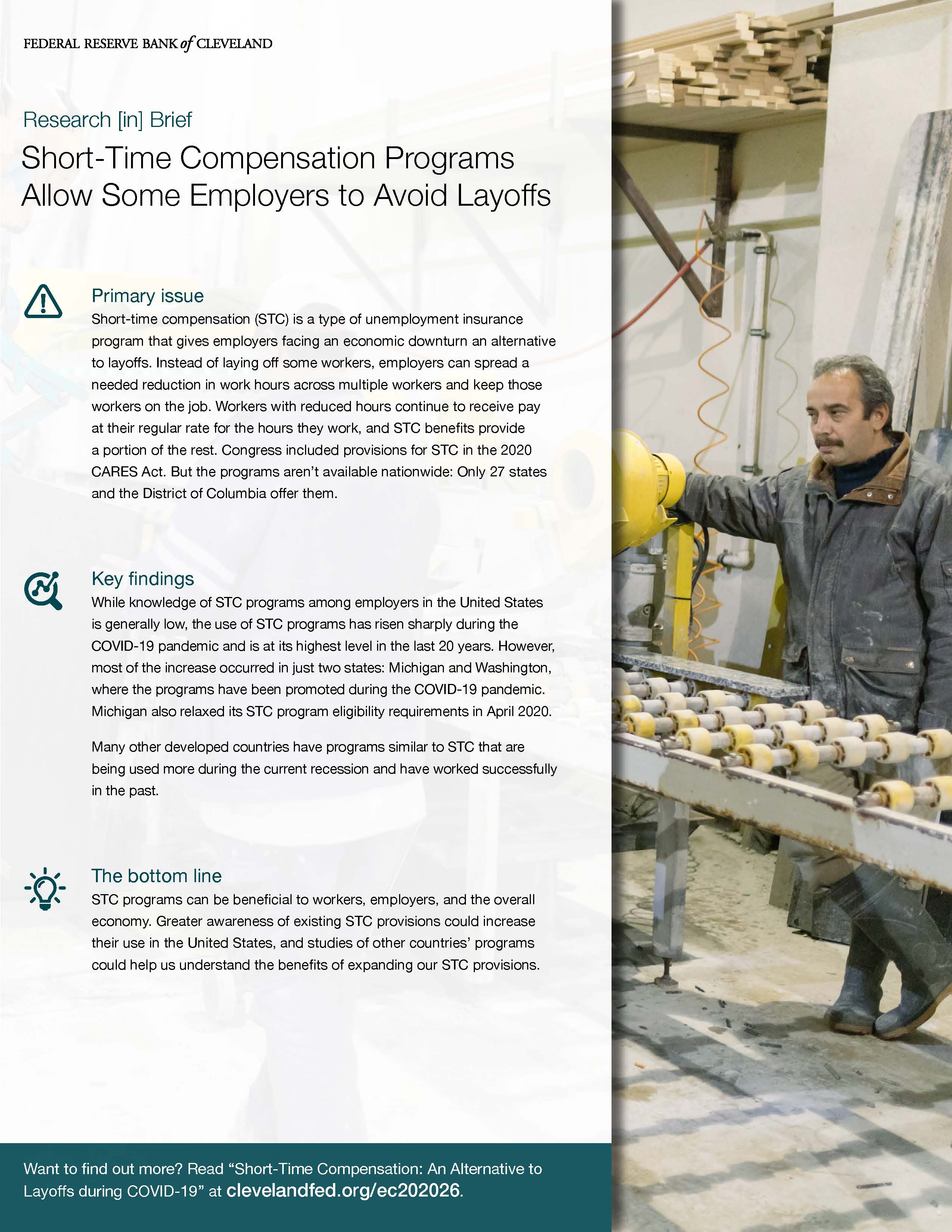- Share
Research [in] Brief: STC Partial Layoffs during COVID-19
Infographic

Full text
Primary issue
Short-time compensation (STC) is a type of unemployment insurance program that gives employers facing an economic downturn an alternative to layoffs. Instead of laying off some workers, employers can spread a needed reduction in work hours across multiple workers and keep those workers on the job. Workers with reduced hours continue to receive pay at their regular rate for the hours they work, and STC benefits provide a portion of the rest. Congress included provisions for STC in the 2020 CARES Act. But the programs aren’t available nationwide: Only 27 states and the District of Columbia offer them.
Key findings
While knowledge of STC programs among employers in the United States is generally low, the use of STC programs has risen sharply during the COVID-19 pandemic and is at its highest level in the last 20 years. However, most of the increase occurred in just two states: Michigan and Washington, where the programs have been promoted during the COVID-19 pandemic. Michigan also relaxed its STC program eligibility requirements in April 2020.
Many other developed countries have programs similar to STC that are being used more during the current recession and have worked successfully in the past.
The bottom line
STC programs can be beneficial to workers, employers, and the overall economy. Greater awareness of existing STC provisions could increase their use in the United States, and studies of other countries’ programs could help us understand the benefits of expanding our STC provisions.
Want to find out more? Read “Short-Time Compensation: An Alternative to Layoffs during COVID-19” at clevelandfed.org/ec202026.
Related resources
Short-Time Compensation: An Alternative to Layoffs during COVID-19
We discuss the costs and benefits of short-time compensation (STC), an unemployment insurance program that allows workers with temporarily reduced hours to receive some unemployment insurance benefits. We describe the provisions for STC in the Middle Class Tax Relief and Job Creation Act of 2012 and the 2020 Coronavirus Aid, Relief, and Economic Security (CARES) Act and report the utilization of STC before and after these acts. The number of states with STC programs has remained unchanged at 27 since the beginning of the pandemic, but STC utilization has recently risen to unprecedented levels, driven largely by increases in Michigan and Washington. However, these increases are small relative to increases in Germany’s popular Kurzarbeit program, suggesting that the United States’ STC program may still have scope for expansion.

